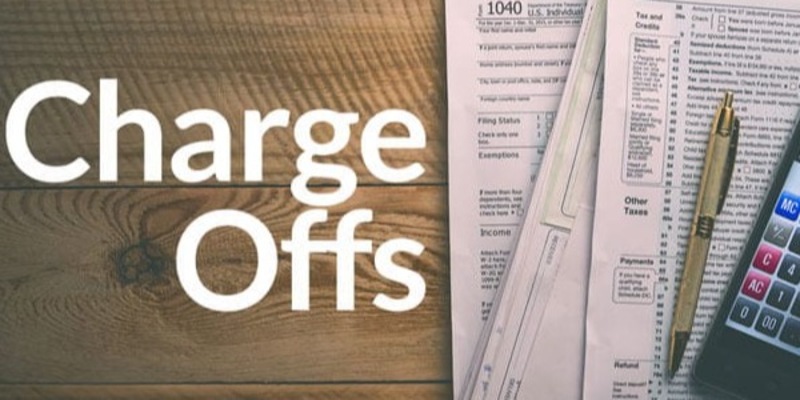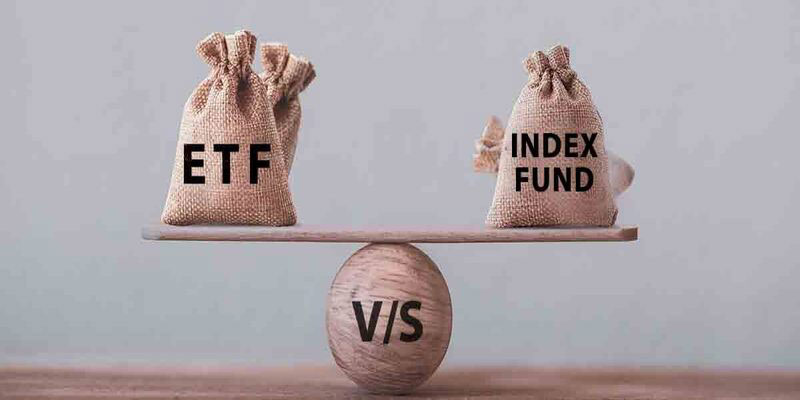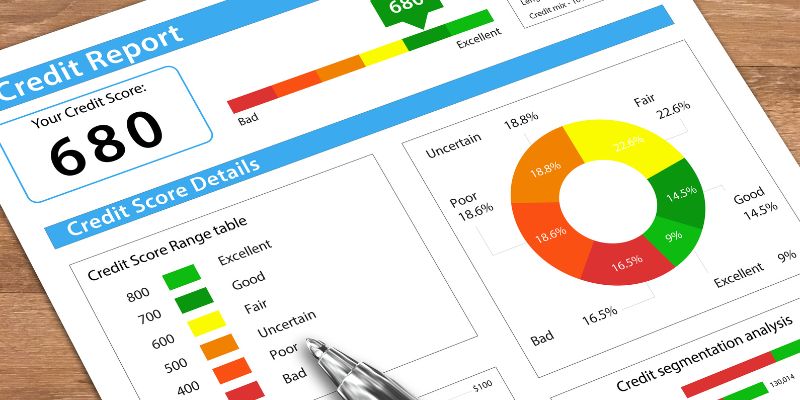Navigating Your Bank Account: Tips to Dodge Insufficient Funds Fees
Do you want to avoid being charged fees for insufficient funds every time you accidentally overspend? Managing your bank account effectively can help you avoid these pesky charges. This guide will explore practical strategies for preventing fees for insufficient funds and maintaining financial stability.
By staying vigilant with your account balance, setting up alerts, and budgeting wisely, you can bid farewell to those unwelcome fees and keep your finances on track. Say goodbye to the frustration of unexpected charges and hello to financial peace of mind.
Understanding Insufficient Funds Fees:
Insufficient funds, commonly known as overdraft fees, arise when you try to conduct a transaction but need more funds in your bank account to cover it. This scenario frequently unfolds during debit card transactions, check payments or electronic transfers.
In such cases, banks impose a fee for processing these transactions despite the shortfall, resulting in your bank account dipping into negative territory. These fees can quickly accumulate, leading to financial strain if not managed effectively. Therefore, understanding how to navigate and avoid these fees is crucial for maintaining a healthy financial standing.
Why You Should Avoid Insufficient Funds Fees:
Avoiding fees for insufficient funds is crucial for maintaining financial stability and peace of mind. Here's why it's essential to prioritize steering clear of these charges:
Cost:
Insufficient funds fees may seem small individually, typically ranging from $25 to $35 per transaction, but they can quickly accumulate. With multiple transactions, you could find yourself facing a substantial bill. This extra expense can disrupt your budget and drain your finances, making it harder to cover essential costs or save for the future.
Negative Balance:
When your bank account dips into the negative due to insufficient funds, you're dealing with more than just the initial fee. Many banks charge additional fees for maintaining a negative balance over time. Prolonged negative balances can lead to penalties or account closures. Additionally, having a negative balance can harm your credit score, affecting your ability to access credit or obtain favorable loan terms.
Stress:
Dealing with fees for insufficient funds can be incredibly stressful, especially if you're already facing financial difficulties. The constant worry about covering expenses, managing costs, and avoiding further financial setbacks can affect your mental well-being. By proactively avoiding these fees, you can reduce stress and focus on building a more secure financial future.

Tips to Avoid Insufficient Funds Fees
Now that you understand the importance of avoiding insufficient funds fees let's explore practical tips to help you manage your bank account effectively:
Keep Tabs on Your Account Balance:
One of the most effective ways to avoid insufficient funds fees is to monitor your account balance regularly. Make it a habit to check your balance before making any purchases or payments. This way, you'll always know exactly how much money you have available and can avoid overdrawing your account.
Set Up Alerts:
To avoid unexpected overdraft fees, leverage account alert services many banks provide. Setting up notifications for low balances will give you timely warnings before potential overdrafts occur. This proactive approach empowers you to stay informed about your finances and take necessary actions to prevent insufficient funds fees.
Maintain a Buffer:
To safeguard against accidental overdrafts, consider maintaining a buffer in your checking account. Aim to keep a cushion of funds you don't touch unless necessary. This buffer can help prevent overdrafts and give you peace of mind knowing you have a financial safety net.
Use Overdraft Protection:
Some banks offer overdraft protection services that link your checking account to another account, such as a savings account or line of credit. If you overdraw your checking account, funds will automatically be transferred from the linked account to cover the transaction, sparing you from an insufficient funds fee. While there may be a fee associated with this service, it's often less than the cost of an insufficient funds fee.
Opt-Out of Overdraft Coverage:
Alternatively, you can opt out of overdraft coverage, meaning transactions will be declined if funds are insufficient. While initially inconvenient, this choice saves you from costly fees. Embrace the simplicity of declined transactions over the frustration of unexpected charges, putting you in control of your finances.
Track Your Transactions:
Alongside monitoring your account balance, diligently track your transactions, encompassing debit card usage and automatic payments. Maintaining a keen awareness of your spending ensures you're informed about pending charges, minimizing the risk of surprises and the potential for overdrawing your account. By staying proactive in managing your transactions, you can effectively maintain financial stability and sidestep the inconvenience of insufficient funds fees.
Budget Wisely:
One of the underlying causes of fees for insufficient funds is overspending. To avoid this pitfall, create a budget and stick to it. Determine your monthly expenses and allocate specific money to each category. By living within your means, you can avoid the need to dip into funds that aren't available, thus avoiding insufficient funds fees.
Consider Alternative Payment Methods:
If you're worried about overdrawing your checking account, opting for alternative payment methods like cash or prepaid debit cards can be a game-changer. With these options, you're limited to spending only what you have, eliminating the risk of over-drafting and the accompanying fees. It's a simple yet powerful way to control your finances.

Conclusion:
In conclusion, avoiding fees for insufficient funds is crucial for maintaining financial stability and peace of mind. These fees add to your financial burden and can lead to negative balances, additional charges, and increased stress. By implementing practical strategies such as monitoring your account balance, setting up alerts, maintaining a buffer, and budgeting wisely, you can effectively avoid these charges.
Embrace proactive financial management techniques and prioritize staying within your means to safeguard your financial well-being. Remember, by taking control of your finances, you can bid farewell to the frustration of unexpected fees and hello to a more secure financial future.
On this page
Understanding Insufficient Funds Fees: Why You Should Avoid Insufficient Funds Fees: Cost: Negative Balance: Stress: Tips to Avoid Insufficient Funds Fees Keep Tabs on Your Account Balance: Set Up Alerts: Maintain a Buffer: Use Overdraft Protection: Opt-Out of Overdraft Coverage: Track Your Transactions: Budget Wisely: Consider Alternative Payment Methods: Conclusion:
By Rick Novak : Dec 05, 2024
Trading with Momentum: An Overview
On paper, momentum investing is less of a conscious strategy and more of a reactive response to market news. The traditional proverb on Wall Street that you should "buy cheap and sell high" runs opposite to the approach of selling underperforming companies and purchasing winning ones. This technique, which may appear enticing at first, is counterproductive
Read More
6686

By Rick Novak : Sep 30, 2024
How Bonds Affect the Stock Market: Everything You Need to Know
This article provides a detailed overview of how bonds affect the stock market and their mutual relationship
Read More
13315

By Rick Novak : Dec 29, 2024
Things to Know Before Buying a Short Sale on a House
Check the property's value and the home for damage before buying shop board shorts on sale. Short sales may also require quick action.
Read More
11727

By Rick Novak : Nov 03, 2024
Unlocking the Path to Credit Repair
Understand the detailed process to eliminate a charge-off from your credit report and boost your credit score properly.
Read More
9433

By Rick Novak : Oct 10, 2024
Explaining Trailing Stop Loss in Day Trading
How a trailing stop loss can help you in day trading. Learn how it protects your profits and reduces losses in fast-moving markets.
Read More
14219

By Rick Novak : Aug 20, 2024
Debt and Credit Obsolescence and How to Survive It
Removing debt and credit score enhancement requires budgeting, spending only what you earn, and paying with cash or debit. Credit-checked services may also be limited
Read More
11471

By Rick Novak : Nov 02, 2024
How do you calculate interest on a loan?
To determine the interest payment, multiply the monthly rate of interest by the amount of outstanding loan balance.
Read More
16900

By Kelly Walker : Oct 22, 2024
Navigating Your Bank Account: Tips to Dodge Insufficient Funds Fees
Ever wondered how to dodge those pesky insufficient funds fees? Find practical strategies to keep your finances on track in this straightforward guide.
Read More
13797

By John Davis : May 18, 2025
What Are The Key Differences Between Exchange-Traded Funds (ETFs) And Index Funds?
Exchange-traded funds (ETFs) and index funds allow investors to purchase a diversified portfolio of securities. While index funds are mutual funds meant to passively track a specific market index, exchange-traded funds (ETFs) are traded like individual stocks. They can be managed either passively or aggressively. ETFs typically have lower entry thresholds than index funds, and ETFs change more frequently.
Read More
6085

By Rick Novak : Nov 29, 2024
7 Proven Strategies for Maintaining A Good Credit Rating
Secure your financial future by keeping a healthy credit score. Read our 7 strategies and start today
Read More
17533

By Kelly Walker : Dec 17, 2024
Price vs. Stock Value: What's the Difference?
The price of the stock is what you actually pay for it. However, value is an intrinsic feature of an asset.
Read More
13378

By Rick Novak : Aug 31, 2024
What Is an Income Fund?
Get the answers on income funds and learn how they can help diversify your investments. Explore all of the different types available with expert advice.
Read More
4716